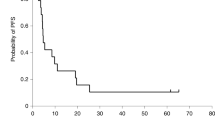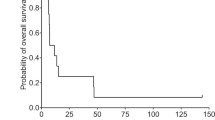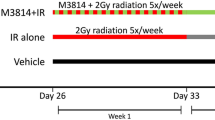Abstract
The development of resistance to radiation and chemotherapeutic agents that cause DNA damage is a major problem for the treatment of breast and other cancers. The p53 tumor suppressor gene plays a direct role in the signaling of cell cycle arrest and apoptosis in response to DNA damage, and p53 gene mutations have been correlated with increased resistance to DNA-damaging agents. Herpes simplex virus thymidine kinase (HSV-tk) gene transfer followed by ganciclovir (GCV) treatment is a novel tumor ablation strategy that has shown good success in a variety of experimental tumor models. However, GCV cytotoxicity is believed to be mediated by DNA damage-induced apoptosis, and the relationship between p53 gene status, p53-mediated apoptosis, and the sensitivity of human tumors to HSV-tk/GCV treatment has not been firmly established. To address this issue, we compared the therapeutic efficacy of adenovirus-mediated HSV-tk gene transfer and GCV treatment in two human breast cancer cell lines: MCF-7 cells, which express wild-type p53, and MDA-MB-468 cells, which express high levels of a mutant p53 (273 Arg-His). Treating MCF-7 cells with AdHSV-tk/GCV led to the predicted increase in endogenous p53 and p21WAF1/CIP1 protein levels, and apoptosis was observed in a significant proportion of the target cell population. However, treating MDA-MB-468 cells under the same conditions resulted in a much stronger apoptotic response in the absence of induction in p21WAF1/CIP1 protein levels. This latter result suggested that HSV-tk/GCV treatment can activate a strong p53-independent apoptotic response in tumor cells that lack functional p53. To confirm this observation, four additional human breast cancer cell lines expressing mutant p53 were examined. Although a significant degree of variability in GCV chemosensitivity was observed in these cell lines, all displayed a greater reduction in cell viability than MCF-7 or normal mammary cells treated under the same conditions. These results suggest that endogenous p53 status does not correlate with chemosensitivity to HSV-tk/GCV treatment. Furthermore, evidence for a p53-independent apoptotic response serves to extend the potential of this therapeutic strategy to tumors that express mutant p53 and that may have developed resistance to conventional genotoxic agents.
This is a preview of subscription content, access via your institution
Access options
Subscribe to this journal
Receive 12 print issues and online access
$259.00 per year
only $21.58 per issue
Buy this article
- Purchase on Springer Link
- Instant access to full article PDF
Prices may be subject to local taxes which are calculated during checkout
Similar content being viewed by others
Author information
Authors and Affiliations
Corresponding author
Rights and permissions
About this article
Cite this article
Li, PX., Ngo, D., Brade, A. et al. Differential chemosensitivity of breast cancer cells to ganciclovir treatment following adenovirus-mediated herpes simplex virus thymidine kinase gene transfer. Cancer Gene Ther 6, 179–190 (1999). https://doi.org/10.1038/sj.cgt.7700005
Received:
Accepted:
Published:
Issue Date:
DOI: https://doi.org/10.1038/sj.cgt.7700005
Keywords
This article is cited by
-
Heat-directed suicide gene therapy for breast cancer
Cancer Gene Therapy (2003)
-
Selective killing of cancer cells based on translational control of a suicide gene
Cancer Gene Therapy (2002)
-
Death receptor-independent cytochrome c release and caspase activation mediate thymidine kinase plus ganciclovir-mediated cytotoxicity in LN-18 and LN-229 human malignant glioma cells
Gene Therapy (2001)



